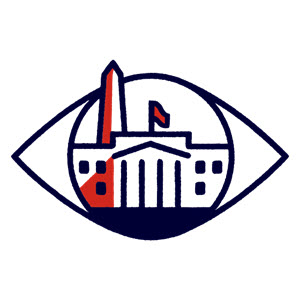New Employer Health Coverage Reporting Required

In addition to filing Forms 1094-C/1095-C with the Internal Revenue Service (IRS) to comply with Affordable Care Act (ACA) requirements, certain employers may now have additional state reporting requirements related to health coverage.
Prior to 2019, the ACA required individuals to maintain qualifying health coverage, or pay a penalty if they did not qualify for an exemption. However, the 2017 Tax Cuts and Jobs Act reduced the ACA individual responsibility penalty to zero, effective January 1, 2019. In response, some states and the District of Columbia (D.C.) have enacted a state-level individual health coverage mandate and associated penalties. Many employers will have a role in the enforcement of these mandates, as providers of health coverage.
Health Coverage Mandates Effective in 2019: D.C. and New Jersey
Effective January 1, 2019, taxpayers in both the District of Columbia (D.C.) and New Jersey are required to maintain minimum essential health coverage or potentially pay a penalty. In both cases, employer reporting of health coverage information (IRS Forms 1094-C and 1095-C) is required to assist the state in enforcing the individual health coverage mandates.
New Jersey has published guidance for employers and other providers of minimum essential coverage on the Treasury website, which specifies that the first employer health coverage returns must be transmitted electronically by March 31, 2020. There is no paper option; however, the file format and content is the same as the IRS requires. Forms must be transmitted using the Division of Revenue and Enterprise Services' (DORES) MFT SecureTransport service, the same method used for processing New Jersey Forms W-2. Returns are only required for partial-year or full-year New Jersey residents, and while the state will accept data on non-residents, filers are cautioned to consult privacy and other laws before sending any sensitive or personal data to New Jersey.
The District of Columbia Office of Tax and Revenue (OTR) recently released frequently asked questions with information for entities required to file Forms 1094-C/1095-C for residents of the District. Applicable entities required to file include employers or other sponsors of employment-based health plans, including governmental agencies, that covered at least 50 full-time employees, including "at least one employee who was a District resident," during the applicable calendar year. The deadline to file health coverage information for 2019 is June 30, 2020. In subsequent tax years, the filing deadline will be 30 days after the IRS deadline, including any extensions. Filings to OTR must also be transmitted electronically. However, they will require a delimited file with a .txt extension rather than the IRS XML version. Forms must be submitted through MyTax.DC.gov.
Neither D.C. nor New Jersey are requiring filers to furnish a second Form 1095-C to individuals, given that there is already a federal requirement under Internal Revenue Code (IRC) Section 6056 to do so. In terms of filing corrected Forms 1095-C, any changes made to Form 1095-C and transmitted to the IRS should also be filed with the states. The guidance for both D.C. and New Jersey outlines how a transmitter can test these processes prior to sending live data next year.
Individual Mandates Effective in 2020
California, Rhode Island and Vermont have all enacted similar laws that require individuals to maintain health coverage, effective January 1, 2020. While the California and Rhode Island laws include employer reporting, Vermont passed a subsequent bill (HB 254) clarifying that reporting will only be required to the Department of Taxation if the federal ACA filing requirement under IRC Section 6055 is suspended or eliminated for any tax year.
Although the details are not yet available, the California bill states that the employer-reporting requirement may be satisfied by providing the same information that is currently reported under the federal requirement, IRC Section 6055, and "any other information the Franchise Tax Board may require" in a format prescribed by the Franchise Tax Board. The first statements to employees must be furnished by January 31, 2021, and the employer reporting will be due to the California Franchise Tax Board on or before March 31, 2021. Failure to file a return will result in a penalty imposed on an applicable entity in the amount of fifty dollars ($50) per applicable individual covered. Rhode Island's law is similar, providing the same furnishing and filing deadlines in 2021. Additional guidance is expected in the upcoming months.
Health Insurance Policy May Continue to Evolve in the Coming Years
Since the federal individual mandate penalty was reduced to zero, many health policy advocates have stressed the importance of an individual health coverage mandate at state level, to ensure an adequate risk pool and guard against spiraling health premiums. Many other states are monitoring the experience of these states, and considering whether similar legislation, and employer reporting, may be necessary. ADP® will continue to monitor these proposals.
ADP Compliance Resources
ADP maintains a staff of dedicated professionals who carefully monitor federal and state legislative and regulatory measures affecting employment-related human resource, payroll, tax and benefits administration, and help ensure that ADP systems are updated as relevant laws evolve. For the latest on how federal and state tax law changes may impact your business, visit the ADP Eye on Washington Web page located at www.adp.com/regulatorynews.
ADP is committed to assisting businesses with increased compliance requirements resulting from rapidly evolving legislation. Our goal is to help minimize your administrative burden across the entire spectrum of employment-related payroll, tax, HR and benefits, so that you can focus on running your business. This information is provided as a courtesy to assist in your understanding of the impact of certain regulatory requirements and should not be construed as tax or legal advice. Such information is by nature subject to revision and may not be the most current information available. ADP encourages readers to consult with appropriate legal and/or tax advisors. Please be advised that calls to and from ADP may be monitored or recorded.
If you have any questions regarding our services, please call 855-466-0790.
ADP, LLC.
One ADP Boulevard,
Roseland, NJ 07068
Updated on August 19, 2019



